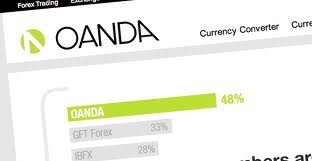Global stock and energy markets were under pressure on Monday after a benchmark purchasing managers’ index showed China’s manufacturing sector contracted sharply in January, raising red flags about the health of the world’s second-largest economy.
China’s National Bureau of Statistics reported on Monday that manufacturing activity contracted at its fastest pace in almost three-and-a-half years in January. The official purchasing managers’ index (PMI) stood at 49.4 in January, down from 49.7 the previous month and below the 50-point mark that separates expansion from contraction.
A median estimate of analysts polled by Reuters predicted a slight decline to 49.6.
January was the sixth consecutive month China’s manufacturing sector had contracted, reflecting its aggressive capacity reduction over the past few years.
The NBS also reported a deceleration in the country’s services sector in January. The official non-manufacturing PMI fell to 53.5 in January from 54.4 in November.
Chinese stocks traded sharply lower on Monday, with the benchmark Shanghai Composite falling 1.8%. The Shanghai Shenzhen CSI 300 closed down 1.5%.
In Hong Kong, the Hang Seng Index dropped 0.5%.
Meanwhile, Japanese stock markets continued to advance on the momentum of the Bank of Japan’s surprise rate cut on Friday. The Nikkei 225 surged 347 points or 2% for the day.
Fears about a protracted slowdown in China weighed on oil prices at the start of the week. US-traded West Texas Intermediate (WTI) crude for March delivery slipped $1.31 or 3.9% to $32.31 a barrel on the New York Mercantile Exchange. Global benchmark Brent crude also fell $1.06 or 3% to $34.93 a barrel on ICE Futures Europe.
Sliding oil prices put a lid on the advance in European stock markets, which had rallied sharply at the end of last week. The Euro Stoxx 50 Pr was trading down 1.4% in midday trading. London’s FTSE 100 and the German DAX were each down more than 1%.
American stock futures were also down across the board, indicating a volatile start to New York trading.
In US data, consumer spending was unchanged in December, but income rose 0.3% after a similar gain in November. A rise in personal income helped push savings to their highest level in three years.
US consumer spending increased 3.4% in all of 2015 after rising 4.2% the previous year. The US economy as a whole expanded 2.4% in 2015, unchanged from the previous year, government data showed on Friday.
Tradersdna is a leading digital and social media platform for traders and investors. Tradersdna offers premiere resources for trading and investing education, digital resources for personal finance, market analysis and free trading guides. More about TradersDNA Features: What Does It Take to Become an Aggressive Trader? | Everything You Need to Know About White Label Trading Software | Advantages of Automated Forex Trading












































